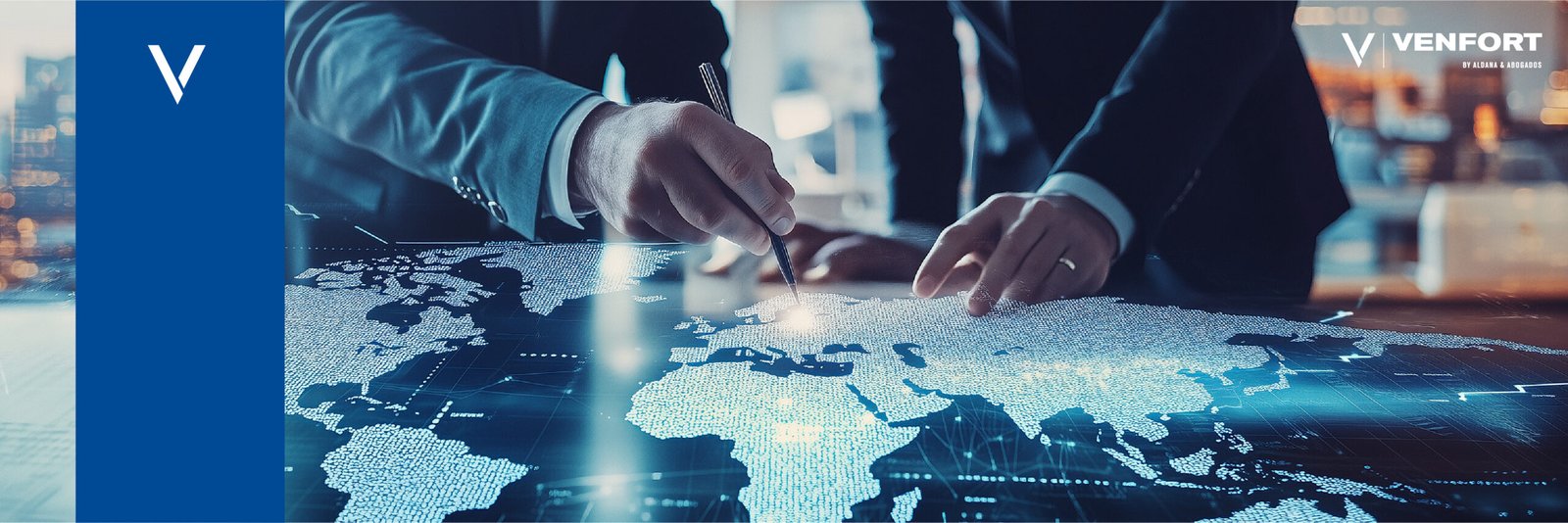When there are indications that someone has diverted money or assets to other jurisdictions (bank accounts, property, companies or cryptoassets), the key is to resort to the international judicial cooperation. Intuition is not enough: a systematic plan is needed. Practical experience shows that it is essential to coordinate with foreign authorities:
"Where assets are located in foreign jurisdictions, law enforcement and judicial institutions may cooperate with their foreign counterparts both to obtain information [...] on the location of assets and to have them effectively frozen and seized.".
1. Identify the route of the money or the asset.
The first step is to map how the suspicious asset traveled. This involves, for example, reviewing bank transfers, deeds of sale and trust agreements, looking for any unusual movements. You should also "lifting the corporate veil"Analyze interposed corporate structures (offshore, foundations, shell companies, trusts, front companies, etc.) to identify the real beneficiaries of the resources. Therefore, financial statements, bank statements and other key documents are often collected to trace the chain of title.
- Carefully track all transfers and acquisitions related to the alleged hidden assets (e.g., real estate or stock purchases) and verify who is listed as the legal or fiduciary owner in each case.
- Analyze related corporate structures (offshore companies, foundations, trusts, nominees), in order to identify the real property of the assets.
2. Use the formal channels of legal assistance
Once the asset route has been mapped, it is essential to activate mutual legal assistance (MLA) mechanisms. Under bilateral or multilateral treaties (e.g., the 1988 Vienna Convention against Drug Trafficking or the United Nations Convention against Corruption - UNCAC), countries send formal requests to each other between prosecutors or central authorities. These requests may include requests for bank or notary information, search warrants for property abroad, etc. In fact, the UNCAC obligates States to afford each other "the widest measure of mutual legal assistance" in economic crimes, including specifically the tasks of "identify or locate the proceeds of crime, property". illicit.
- Send letters rogatory and international assistance requests to the prosecutors' offices of the countries where assets may be located, in accordance with agreements such as the Vienna Convention or existing MLA treaties (European, American, etc.).
- Requesting coordinated precautionary measures (preventive seizures, freezing of accounts, annotations of inhibition in registries), to prevent assets from continuing to circulate during the duration of the investigation.
3. Expert support in crypto-assets and global registries
In the digital age, it pays to involve forensic experts. Although cryptocurrencies appear anonymous, all transactions are recorded on the public blockchain. For this reason, specialized reports can track the flow of funds electronic and disclose transfer routes to identified accounts or exchanges. In the words of experts: "A digital transaction always leaves a trail. Once the veil of secrecy has been penetrated, assets can be searched, found and seized.". Thus, blockchain experts use forensic software to track bitcoins and detect addresses associated with suspicious activity.
In addition, international databases should be exploited: public land registries, commercial and legal entity registries and, above all, the new international databases. beneficial ownership records. Accurate information on who actually owns a company or real estate in each country is a key cross-cutting tool. In fact, recent studies underline that the information in these registries "constitutes a tool fundamental for the prevention and effective investigation" of international financial crimes.
- Cryptocurrency forensic analysis: Track blockchain transactions through specialized expertise. Identify fund flows, linked crypto-accounts and unusual patterns to link them to individuals or legal structures.
- Access to global databases: consult international property and corporate registries (including public registries of beneficial owners) to confirm who controls the assets in each country.
4. Preparing civil and criminal litigation in parallel.
To ensure results, civil and criminal proceedings are often coordinated. In the civil sphere, lawsuits or legal actions against the assets (e.g., seizures or precautionary measures in asset forfeiture proceedings) are designed to immobilize them. Simultaneously, in criminal proceedings, criminal complaints or formal accusations are filed for related crimes: asset forfeiture, money laundering or misappropriation, as the case may be. In this way, while the criminal investigations are progressing, the assets are secured through civil proceedings, maximizing the possibility of effective confiscation once the process is concluded.
- Bringing civil actions (e.g. nullity suits or liens) aimed at provisionally securing the suspect properties or accounts.
- Coordinate criminal complaints for economic crimes (laundering, evasion, appropriation) to strengthen the legal basis for future confiscation and enable the implementation of the requested international precautionary measures.
Conclusion: Don't let the suspicion of hidden assets depend only on your intuition. At VENFORT Lawyers We have extensive experience in international cooperation to locate and recover hidden assets. A specialized team will know how to activate the appropriate legal mechanisms in each jurisdiction. If you believe there are assets hidden abroad, consult with lawyers who master the rules of the global game: this is the only way to find and repatriate them.













